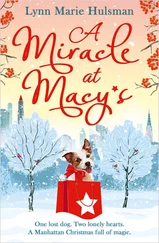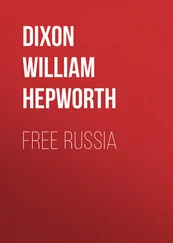Nikolai Nekrasov - Who Can Be Happy and Free in Russia?
Здесь есть возможность читать онлайн «Nikolai Nekrasov - Who Can Be Happy and Free in Russia?» весь текст электронной книги совершенно бесплатно (целиком полную версию без сокращений). В некоторых случаях можно слушать аудио, скачать через торрент в формате fb2 и присутствует краткое содержание. Год выпуска: 2005, Жанр: Поэзия, на английском языке. Описание произведения, (предисловие) а так же отзывы посетителей доступны на портале библиотеки ЛибКат.
- Название:Who Can Be Happy and Free in Russia?
- Автор:
- Жанр:
- Год:2005
- ISBN:нет данных
- Рейтинг книги:3 / 5. Голосов: 1
-
Избранное:Добавить в избранное
- Отзывы:
-
Ваша оценка:
- 60
- 1
- 2
- 3
- 4
- 5
Who Can Be Happy and Free in Russia?: краткое содержание, описание и аннотация
Предлагаем к чтению аннотацию, описание, краткое содержание или предисловие (зависит от того, что написал сам автор книги «Who Can Be Happy and Free in Russia?»). Если вы не нашли необходимую информацию о книге — напишите в комментариях, мы постараемся отыскать её.
Who Can Be Happy and Free in Russia? — читать онлайн бесплатно полную книгу (весь текст) целиком
Ниже представлен текст книги, разбитый по страницам. Система сохранения места последней прочитанной страницы, позволяет с удобством читать онлайн бесплатно книгу «Who Can Be Happy and Free in Russia?», без необходимости каждый раз заново искать на чём Вы остановились. Поставьте закладку, и сможете в любой момент перейти на страницу, на которой закончили чтение.
Интервал:
Закладка:
Doubt, as he worked, began plaguing him:
Once of a voice came the sound,
"Heh, old man, say what thy purpose is?"
Crossing himself he looked round.
There, Pan [58] Polish title for nobleman or gentleman.
Glukhóvsky was watching him
On his brave Arab astride,
Rich was the Pan, of high family, 350
Known in the whole countryside.
Many cruel deeds were ascribed to him,
Filled were his subjects with hate,
So the old hermit to caution him
Told him his own sorry fate.
"Ho!" laughed Glukhóvsky, derisively,
"Hope of salvation's not mine;
These are the things that I estimate—
Women, gold, honour, and wine.
"My life, old man, is the only one; 360
Many the serfs that I keep;
What though I waste, hang, and torture them—
You should but see how I sleep!"
Lo! to the hermit, by miracle,
Wrath a great strength did impart,
Straight on Glukhóvsky he flung himself,
Buried the knife in his heart.
Scarce had the Pan, in his agony,
Sunk to the blood-sodden ground,
Crashed the great tree, and lay subjugate,
Trembled the earth at the sound. 371
Lo! and the sins of the anchorite
Passed from his soul like a breath.
"Let us pray God to incline to us,
Slaves in the shadow of Death…."
CHAPTER III
OLD AND NEW
Ióna has finished.
He crosses himself,
And the people are silent.
And then of a sudden
The trader cries loudly
In great irritation,
"What's wrong with the ferry?
A plague on the sluggards!
Ho, ferry ahoy!"
"You won't get the ferry 10
Till sunrise, for even
In daytime they're frightened
To cross: the boat's rotten!
About Kudeár, now—"
"Ho, ferry ahoy!"
He strides to his waggon.
A cow is there tethered;
He churlishly kicks her.
His hens begin clucking;
He shouts at them, "Silence!" 20
The calf, which is shifting
About in the cart.
Gets a crack on the forehead.
He strikes the roan mare
With the whip, and departing
He makes for the Volga.
The moon is now shining,
It casts on the roadway
A comical shadow,
Which trots by his side. 30
"Oho!" says the Elder,
"He thought himself able
To fight, but discussion
Is not in his line….
My brothers, how grievous
The sins of the nobles!"
"And yet not as great
As the sin of the peasant,"
The carter cannot here
Refrain from remarking. 40
"A plaguey old croaker!"
Says Klím, spitting crossly;
"Whatever arises
The raven must fly
To his own little brood!
What is it, then, tell us,
The sin of the peasant?"
A'miral Widower sailed on the sea,
Steering his vessels a-sailing went he. 49
Once with the Turk a great battle he fought,
His was the victory, gallantly bought.
So to the hero as valour's reward
Eight thousand souls [59] Serfs.
did the Empress award.
A'miral Widower lived on his land
Rich and content, till his end was at hand.
As he lay dying this A'miral bold
Handed his Elder a casket of gold.
"See that thou cherish this casket," he said,
"Keep it and open it when I am dead.
There lies my will, and by it you will see
Eight thousand souls are from serfdom set free." 61
Dead, on the table, the A'miral lies,
A kinsman remote to the funeral hies.
Buried! Forgotten! His relative soon
Calls Gleb, the Elder, with him to commune.
And, in a trice, by his cunning and skill,
Learns of the casket, and terms of the will.
Offers him riches and bliss unalloyed,
Gives him his freedom,—the will is destroyed!
Thus, by Gleb's longing for criminal gains,
Eight thousand souls were left rotting in chains, 71
Aye, and their sons and their grandsons as well,
Think, what a crowd were thrown back into Hell!
God forgives all. Yes, but Judas's crime
Ne'er will be pardoned till end of all time.
Peasant, most infamous sinner of all,
Endlessly grieve to atone for thy fall!
Wrathful, relentless,
The carter thus finished
The tale of the peasant 80
In thunder-like tones.
The others sigh deeply
And rise. They're exclaiming,
"So, that's what it is, then,
The sin of the peasant.
He's right. 'Tis indeed
A most terrible sin!"
"The story speaks truly;
Our grief shall be endless,
Ah, me!" says the Elder. 90
(His faith in improvements
Has vanished again.)
And Klímka, who always
Is swayed in an instant
By joy or by sorrow,
Despondingly echoes,
"A terrible sin!"
The green by the Volga,
Now flooded with moonlight,
Has changed of a sudden: 100
The peasants no longer
Seem men independent
With self-assured movements,
They're "Earthworms" again—
Those "Earthworms" whose victuals
Are never sufficient,
Who always are threatened
With drought, blight, or famine,
Who yield to the trader
The fruits of extortion 110
Their tears, shed in tar.
The miserly haggler
Not only ill-pays them,
But bullies as well:
"For what do I pay you?
The tar costs you nothing.
The sun brings it oozing
From out of your bodies
As though from a pine."
Again the poor peasants 120
Are sunk in the depths
Of the bottomless gulf!
Dejected and silent,
They lie on their stomachs
Absorbed in reflection.
But then they start singing;
And slowly the song,
Like a ponderous cloud-bank,
Rolls mournfully onwards.
They sing it so clearly 130
That quickly our seven
Have learnt it as well.
The peasant stands
With haggard gaze,
He pants for breath,
He reels and sways;
From famine food,
From bread of bark,
His form has swelled,
His face is dark. 140
Through endless grief
Suppressed and dumb
His eyes are glazed,
His soul is numb.
As though in sleep,
With footsteps slow,
He creeps to where
The rye doth grow.
Upon his field
He gazes long, 150
He stands and sings
A voiceless song:
"Grow ripe, grow ripe,
O Mother rye,
I fostered thee,
Thy lord am I.
"Yield me a loaf
Of monstrous girth,
A cake as vast
As Mother-Earth. 160
"I'll eat the whole—
No crumb I'll spare;
With wife, with child,
I will not share."
"Eh, brothers, I'm hungry!"
A voice exclaims feebly.
It's one of the peasants.
Интервал:
Закладка:
Похожие книги на «Who Can Be Happy and Free in Russia?»
Представляем Вашему вниманию похожие книги на «Who Can Be Happy and Free in Russia?» списком для выбора. Мы отобрали схожую по названию и смыслу литературу в надежде предоставить читателям больше вариантов отыскать новые, интересные, ещё непрочитанные произведения.
Обсуждение, отзывы о книге «Who Can Be Happy and Free in Russia?» и просто собственные мнения читателей. Оставьте ваши комментарии, напишите, что Вы думаете о произведении, его смысле или главных героях. Укажите что конкретно понравилось, а что нет, и почему Вы так считаете.











